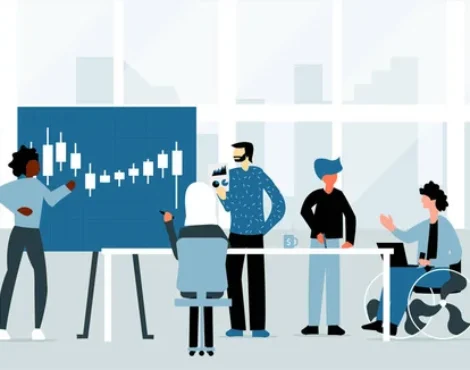Trading is not just about numbers and charts; it is also about emotions. The role of emotions in trading decisions is often underestimated, but it can have a significant impact on a trader’s success or failure. Emotions such as fear, greed, and excitement can influence the way traders make decisions, leading to impulsive actions and potentially detrimental outcomes. In this article, we will explore the impact of emotions on trading, how to recognize emotional triggers, and strategies for managing emotions for better trading decisions.
The Impact of Emotions on Trading
Emotions can have a powerful influence on trading decisions, often leading traders to act impulsively and irrationally. Fear of missing out (FOMO) can cause traders to jump into trades without proper analysis, while fear of loss can lead to holding onto losing positions for too long. Excitement and greed can drive traders to take on excessive risk, chasing the potential for high returns without considering the likelihood of success.
Emotions can also lead to overconfidence, where traders may ignore warning signs and believe they are invincible. This can result in taking on too much risk and ultimately suffering significant losses. On the other hand, emotions such as anxiety and doubt can cause traders to second-guess their decisions and miss out on profitable opportunities.
The impact of emotions on trading is clear – they can lead to poor decision-making and ultimately affect a trader’s bottom line. It is crucial for traders to recognize and manage their emotions to make more rational and profitable trading decisions.
Emotional Trading: A Risky Business
Emotional trading is risky because it often leads to impulsive and irrational decisions. When emotions take over, traders are more likely to deviate from their trading plan and make decisions based on short-term feelings rather than long-term goals. This can result in taking on too much risk or missing out on profitable opportunities.
Emotions such as fear and greed can also lead to overtrading, where traders make too many trades in a short period in an attempt to recover losses or capitalize on perceived opportunities. This can lead to increased transaction costs and reduced overall returns.
To avoid the risks of emotional trading, traders must develop a disciplined approach to trading, sticking to their strategy and avoiding impulsive decisions based on short-term emotions.

Recognizing Emotional Triggers in Trading
Recognizing emotional triggers in trading is crucial for managing emotions and making better trading decisions. Emotional triggers can include external factors such as market news or events, as well as internal factors such as personal stress or fatigue. It is essential for traders to identify these triggers and develop strategies to manage them.
Some common emotional triggers in trading include:
- Market volatility leading to fear or excitement
- Losses leading to a desire to “get even” with the market
- Profits leading to overconfidence and increased risk-taking
By recognizing these triggers, traders can take steps to manage their emotions and avoid making impulsive decisions based on short-term feelings.
Managing Emotions for Better Trading Decisions
Managing emotions is critical for making better trading decisions. One strategy for managing emotions is to develop a trading plan and stick to it, regardless of short-term market movements or emotions. A trading plan should include clear entry and exit points, risk management strategies, and a plan for handling losses.
Another strategy is to practice mindfulness and self-awareness, recognizing when emotions are starting to take over and taking steps to manage them. This can include taking a break from trading, engaging in relaxation techniques, or seeking support from a mentor or trading community.
Traders can also use tools such as journaling to track their emotions and trading decisions, helping to identify patterns and triggers for emotional trading.
The Psychology Behind Trading Choices
The psychology behind trading choices is complex and multifaceted. Traders must navigate the balance between fear and greed, as well as manage emotions such as overconfidence, anxiety, and doubt. Understanding the psychological factors that influence trading decisions can help traders develop strategies for managing emotions and making more rational choices.
Behavioral finance, a field that studies the psychological influences on financial decision-making, has identified several cognitive biases that can impact trading decisions. These biases include:
- Overconfidence bias, where traders believe they are more skilled than they actually are
- Confirmation bias, where traders seek out information that confirms their beliefs and ignore information that contradicts them
- Loss aversion bias, where traders are more sensitive to losses than gains
By recognizing and managing these biases, traders can make more informed and rational trading decisions.
Rational vs. Emotional Trading Strategies
Rational trading strategies are based on analysis and logic, while emotional trading strategies are based on short-term feelings and impulses. The two approaches can lead to significantly different outcomes in trading.
| Strategy | Description | Potential Outcome |
|---|---|---|
| Rational Trading | Based on analysis and logic | Consistent and sustainable returns |
| Emotional Trading | Based on short-term feelings | Impulsive decisions and potential losses |
Rational trading strategies involve sticking to a trading plan, using sound risk management techniques, and making decisions based on objective analysis. Emotional trading strategies, on the other hand, involve making decisions based on emotions such as fear, greed, and excitement, often leading to impulsive actions and potential losses.
To be successful in trading, it is essential to adopt a rational trading strategy and manage emotions to avoid the pitfalls of emotional trading.
Overcoming Emotional Obstacles in Trading
Overcoming emotional obstacles in trading is essential for success. Traders must develop the discipline to stick to their trading plan and avoid making impulsive decisions based on short-term emotions. This requires self-awareness and the ability to manage emotions such as fear, greed, and overconfidence.
One approach to overcoming emotional obstacles is to develop a strong mental game, building resilience and the ability to handle losses without letting emotions take over. This can involve techniques such as visualization, positive self-talk, and creating a supportive trading environment.

Another approach is to focus on the process rather than the outcome, recognizing that losses are a part of trading and that the goal is to make consistent and rational decisions over time.
The Science of Emotional Trading Control
The science of emotional trading control involves understanding the psychological and physiological factors that influence trading decisions. Research has shown that emotions can have a significant impact on decision-making, affecting everything from risk perception to reaction times.
Techniques such as mindfulness, meditation, and biofeedback can help traders develop the ability to recognize and manage their emotions, leading to better trading decisions. These techniques can help traders stay calm and focused, reducing the likelihood of impulsive decisions based on short-term emotions.
The use of technology, such as trading algorithms and automated systems, can also help traders manage emotions by removing the emotional component from decision-making. These tools can help traders stick to their trading plan and make more rational decisions.
The role of emotions in trading decisions cannot be ignored. Emotions can have a significant impact on a trader’s success or failure, leading to impulsive actions and poor decision-making. To be successful in trading, traders must develop strategies for managing emotions, recognizing and overcoming emotional obstacles, and adopting a rational trading strategy. By understanding the psychology behind trading choices and using techniques to control emotions, traders can improve their decision-making and achieve long-term success in the markets.



